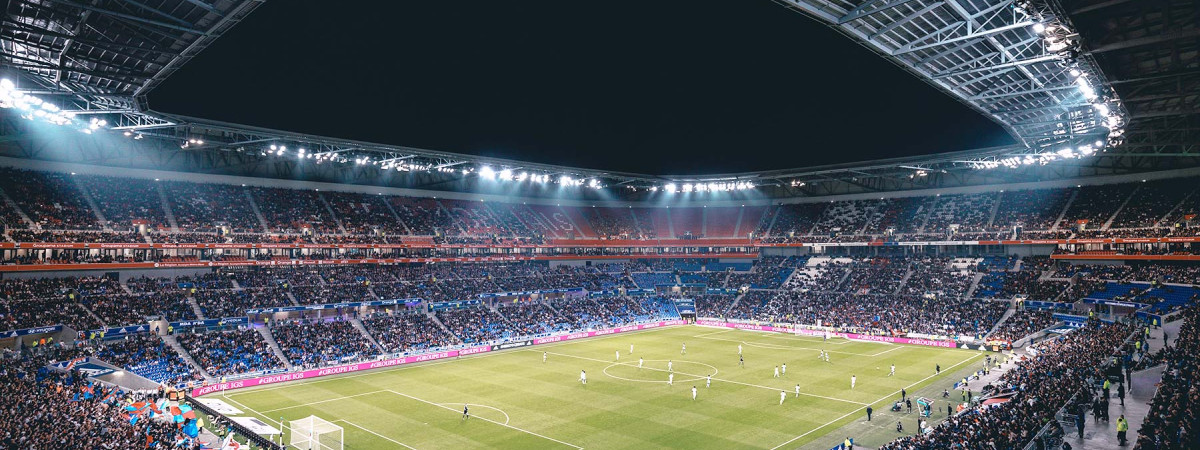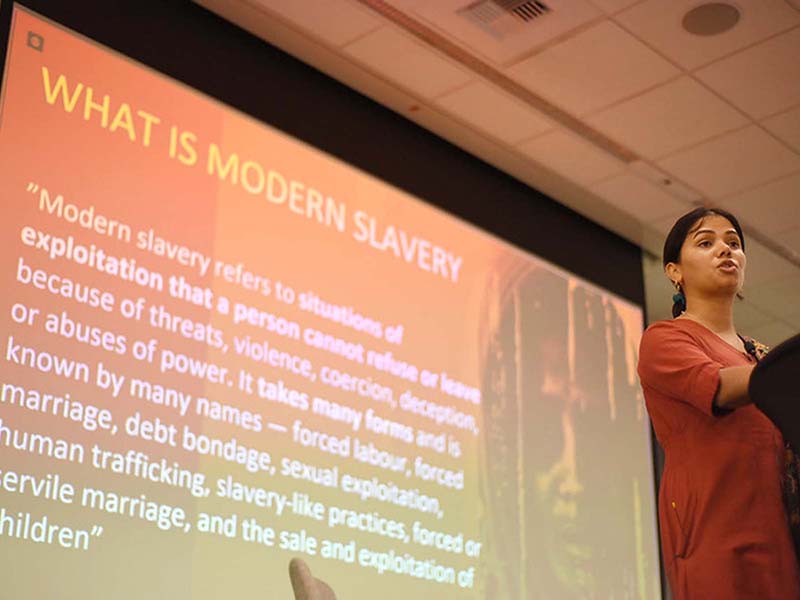
Photo by Thomas Serer on Unsplash
Key Points
- Major sporting events have been linked with serious human rights abuses, including sex trafficking as well as modern slavery in the construction industry and janitorial and security services.
- It is paramount for business involved in large sporting events to follow guidance from the UNGPs and enhance prevention strategies.
- Adopting anti-trafficking policies and effective grievance mechanisms, as well as ensuring remediation, all contribute to addressing the private sector’s duty for the protection of human rights.
On Sunday, November 20 at the Al Bayt Stadium in Qatar, Ecuador prevailed 2-0 over the host country team at the inaugural game of the FIFA Men’s World Cup—a tournament marred by controversy over human rights impacts on migrant foreign workers, who were employed at construction sites or provided essential services.
While mega sporting events can be catalytic to promoting human rights, there are indeed serious implications for business not just before, but during and after such events if companies fail to conduct effective due diligence or put in place prevention and mitigation measures. Grave violations of human rights, such as forced labor and human trafficking, entail far-reaching business consequences amidst heightened public scrutiny.
The UN Guiding Principles on Business and Human Rights (UNGPs) provide guidance on the steps businesses should take to avoid infringing on the human rights of others and to address adverse impacts. Businesses that are involved in major sporting events must be aware of their duties and responsibilities.
The Context
Migrant workers who traveled to Qatar with a promise of well-paid jobs, including from Nepal, Bangladesh, India, Pakistan, Sri Lanka, the Philippines, and Kenya, reported widespread labor abuses. Exploitative and forced labor practices amounted to significant recruitment fees, passport confiscation, debt bondage, poor living conditions, and the tragic death of at least 6,500 workers.
Reported abuses are not confined to the construction industry. Thousands of workers in multiple sectors central to the sporting event, such as cleaning services, private security, and waste disposal, have alleged serious human and labor rights violations. Hotel staff in the accommodation and hospitality sector were subjected to slavery-like practices, such as wage retention and high recruitment fees.
Over the years, the nexus between human trafficking and major sporting events such as the US Super Bowl have emerged not only in the lead up to, but also during and after, the event. Sex trafficking, involuntary servitude, and labor exploitation can all increase because of the demand for services and, sadly, due to the influx of visitors to a host city or state. Even beyond an event, infrastructure, such as sporting facilities and hotels, will continue to require workers to maintain and run properties.
Key Business Priorities
Beyond the FIFA World Cup in Qatar, and with other major sporting events planned such as the Summer Olympic Games in France and the 2026 FIFA World Cup across Canada, Mexico, and the United States, there are several key steps business and investors can take:
- Implement a strong company anti-trafficking policy. A viable prevention strategy to address the risks of modern slavery starts with taking a leadership position in developing and adopting a forward-facing policy that addresses fair recruitment of migrant workers. Suppliers and vendors should responsibly source their products and hire staff ethically—sub-contracting practices should be limited and duly monitored.
- Train staff on how to respond. Standard Operating Procedures (SoPs), especially for hotel personnel, should be adopted. Training staff on human trafficking indicators can help identify victims and address the misuse of accommodation premises, including for sex trafficking.
- Enhance grievance mechanisms. Companies can introduce an effective reporting mechanism for workers to safely report labor abuses, exploitation, and other human rights abuses. The application of technology-based innovation can help workers report anonymously.
- Ensure remedy to those affected. As a follow-up to established abuses, companies involved can take urgent action, ensure decent and safe work for migrant workers, and provide effective remediation.
- Involve local organizations and grassroots associations. Businesses can meaningfully engage with human rights and civil society organizations on the ground before, during, and after their involvement with a sporting event to assess risks and adopt necessary mitigation strategies.
Human rights abuses related to large sporting events are sadly not infrequent. With the release of the new Global Estimates on Modern Slavery pointing at 86 percent of forced labor cases happening within the private economy, companies have not only a responsibility under the UNGPs’ framework to counter modern slavery, but also a critical role in promoting and advancing human rights at mega sporting events worldwide.
BSR’s latest sustainability insights and events straight to your inbox.
Topics
Let’s talk about how BSR can help you to transform your business and achieve your sustainability goals.








